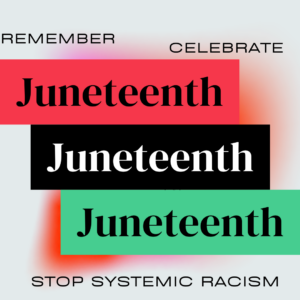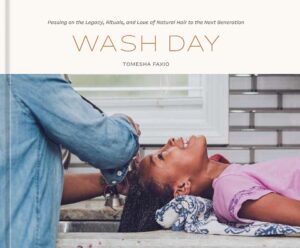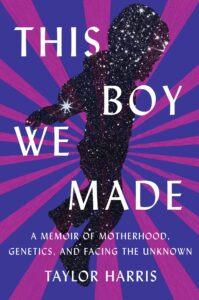 Systemic racism (defined as the oppression of a racial group to the advantage of another as perpetuated by inequity within interconnected systems) can come in many forms. The following books show two examples – both very real and very much a part of American society.
Systemic racism (defined as the oppression of a racial group to the advantage of another as perpetuated by inequity within interconnected systems) can come in many forms. The following books show two examples – both very real and very much a part of American society.
In Wash Day, Tomesha Faxio, a self-taught documentary photographer dedicated to conveying the Black experience, lovingly photographs the process Black women go through to wash, detangle, condition and style their natural hair. The result is a beautiful depiction of their stories and what wash day means to them.
We might not think about it much, but hair can help instill empowerment and confidence. It can also cause stress and anxiety, especially when it doesn’t fit specific societal molds. Struggling to tame the hair you were given and learning to live with it – even love it – is the theme woven throughout Wash Day.
Combining touching photography with a descriptive history of Black women’s natural hair, Faxio, who is also a master cosmetologist and the self-acclaimed “Queen of Natural Hair,” explains how Black women and their hair have been misunderstood, misinformed and misrepresented for centuries – yet another form of systemic racism. By focusing on the bonding that occurs on wash day between mothers and daughters, she demonstrates that Black hair and beauty rituals can and should be open, available and very much a part of our vernacular and society.
 Another example is how Black people have been treated by the medical community. They have been shut out of health care, not listened to/taken seriously and even used as test subjects for years. In her debut memoir This Boy We Made, Taylor Harris heartbreakingly depicts a mother’s worst fear, when her young boy suddenly begins to experience a string of health issues that baffled medical experts.
Another example is how Black people have been treated by the medical community. They have been shut out of health care, not listened to/taken seriously and even used as test subjects for years. In her debut memoir This Boy We Made, Taylor Harris heartbreakingly depicts a mother’s worst fear, when her young boy suddenly begins to experience a string of health issues that baffled medical experts.
She struggles through the highs and lows of one diagnosis after another, all the time coping with a lifelong anxiety disorder and the institutional racism that she frustratingly butts up against time and time again as a Black woman living in Charlottesville, VA. Her son Tophs undergoes test after test, finally receiving genetic testing that reveals the presence of a dreaded gene in Harris’s family, a serious issue that warrants a life-changing decision she has to add to her already full plate. As a result, This Boy We Made is many books in one, combining elements of science and medicine, mental health and wellness, parenting principles and systemic racism. Fusing all these themes together into an entertaining and thoughtful way would seem an exhausting task, yet Harris does it with honesty and grace.
For more books on about systemic racism, check out the following from the Rutgers collection:
- White Men’s Law: The Roots of Systemic Racism by Peter Irons – recounts and explores the legal and extralegal means by which systemic White racism has kept Black Americans “in their place” from slavery to police and vigilante killings of Black men and women, from 1619 to the present.
- Hidden in White sight : how AI empowers and deepens systemic racism by Calvin D. Lawrence – illuminates how unintended models and algorithms can wreak havoc on the unsuspected and explores how subtle AI biases seep into the innermost realms of our everyday lives.
- COVID-19 and Health System Segregation in the US: Racial Health Disparities and Systemic Racismby Prem Misir – highlights and suggests remedies for the racial and ethnic health disparities confronting people of color amid COVID-19 in the United States
- Black Health: The Social, Political, and Cultural Determinants of Black People’s Health by Keisha Ray – “Black Health” dispels any notion that Black people have inferior bodies that are inherently susceptible to disease.
- Systemic racism a theory of oppression by Joe R. Feagin – Joe Feagin develops a theory of systemic racism to interpret the racialized character and development of society.
- Democracy and Exclusion by Patti Tamara Lenard – A contextual methodology to look at how and when democracies exclude both citizens and non-citizens from territory and from membership to determine if and when there are instances when such exclusion is justified.